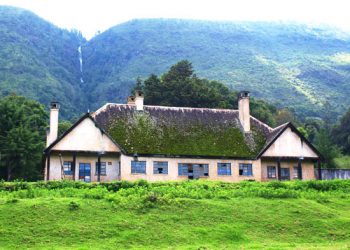After retiring, the National Security Intelligence Service (now National Intelligence Services), Esau Kioni, retreated back to his farm in Othaya where, in addition to being the national chairman of the Democratic Party, he has been growing avocados and an assortment of fruits.
The former spy has zeroed on hass avocado fruit trees farming and currently has over 200 bushes in his farm in Mahiga location, Othaya sub-county in Nyeri County.
Kioni came across the lucrative hass avocado cultivar when he was a director at Kiru Tea Factory in Murang’a in 2008.
“I introduced the cultivar to tea farmers so they could intercrop it with tea. People in Kihari, Kahiro sub-location in Murang’a County were receptive of the idea and planted a lot of trees in their farms. Farmers planted over 4000 trees then,” he says.
Today, they reap fruits of the venture.
Kioni, however, says hass exists in three types. He says there is the original hass cultivar, golden hass and giant hass and calls on farmers to plant hass original as it fetches good money in the market.
The farmer has planted the original hass cultivar. He says most farmers confuse the hass and fuerte varieties but says they can distinguish them through their out skin.
Fuerte, he says, has a smooth skin while hass has a rough skin. “Has has a long shelf life and therefore ideal for export. Fuette is also good for export market but has is better,” he said.
The farmer says he ventured in avocado farming about three to four years ago. With proper husbandry and better farming practices, one can start harvesting in about 18 months.
For farmers who would wish to venture in their farming, Kioni advises that the seedlings should be planted at a spacing of five meters or fifteen feet and the same distance between rows.
A two by two feet hall should be dug. One bucket of well decomposed goats or two buckets of cow manure or compost manure well mixed with the top soil is added.
“Then plant your tree and water it regularly especially during the dry season, the tree will grow quickly and by the 18th month, it will have started bearing fruits,” he explains.
A farmer received optimum harvest in two years. “This is quick money and especially if harvested at the recommended time when the fruits are mature,” he says.
The fruits should be harvested after turning from Bright to dark green and taken to the market. If left to stay longer on the tree, the fruit changes from dark green to dark purple and such fruit is not good for export market as has a very short shelf life.
He warns farmers to desist from selling the fruits at Sh8 each as they always do saying they run at a loss by so doing. Instead, he advises them to sell their fruits according to grades.
“There is a ring used to grade the fruits and any fruit that fails to pass through the round ring, then it is deemed to be of a high grade and can fetch not less than Sh21 per fruit,” he advises.
“Any mature fruit that goes through the ring is deemed to be of a lower grade and can fetch Sh20. This fruit is used in manufacturing of oil,” he adds.
However, he adds, the big fruits can be sold at Sh35 per fruit after sorting out. A single mature hass avocado tree should produce more than 600 fruits in a year. Sold at Sh20 per fruit, a single tree is capable of fetching Sh12,000.
He says the biggest problem is pests such as the fruit flies and moths which pierce the fruits but he does not spray them with chemicals. Instead, he uses traps to trap them.
He advises fellow tea farmers to embrace growing of the tree to supplement their earnings. “These trees bare fruits during cold season in June to August when tea production is usually at its lowest production level and no pests can survive,” he says adding that the fruits do well in tea zones.
He sells the fruits to Kakuzi with whom he has entered into a contract with as their suppliers. The hass seedlings are locally available at Sh200 per seedling. He says Kakuzi also has a big nursery of the seedlings and will start selling the fruit trees at Sh300 per tree. Others include JKUAT in Juja.






